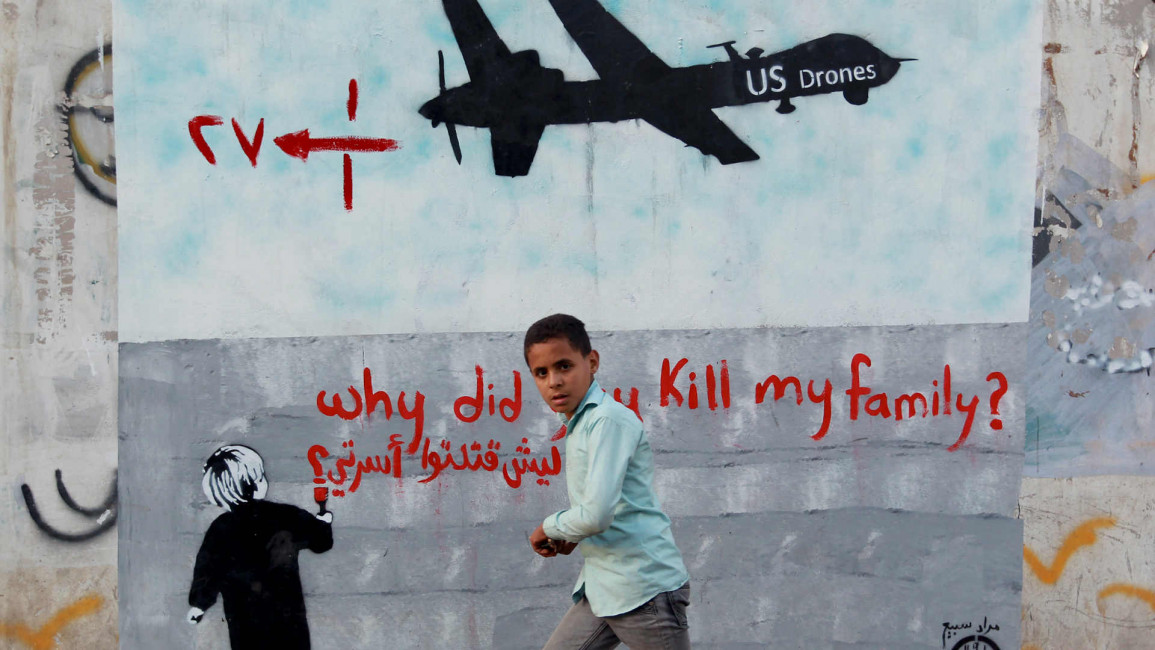Saleh vacillated between supporting jihadist causes and backing the American campaign against al-Qaeda, all the while vexing allies and foes. His death and the challenges Yemen now faces illustrate everything that is wrong in Washington's approach to a Middle East it has consistently failed to navigate.
America merely drifts from crisis to crisis, caught in a whirlwind from which it cannot escape.
Much like Iraq's Saddam Hussein and Libya's Muammar Gaddafi, the legacy Saleh bequeaths to his successor does not leave much room for optimism. Yemen is a country in name more than anything else. It lacks institutions and national solidarity, and the wily Saleh was forced to rely on tribes and makeshift alliances to assure his rule.
While Arab governments incarcerated their citizens returning from the Afghan campaign against the Soviets, Saleh not only lavished his with honours, but welcomed those from other nations to fight his battles, including a 1994 civil war.
Saleh used oil wealth to create a patronage network loyal solely to him, thus throttling economic development while creating a culture of corruption. He staffed key military and security positions with family and tribal members. Though Saleh allowed the opposition to make substantial gains in limited democratic elections in 1993, by 2006 he had stifled competition, giving his party a monopoly on power.
|
 |
Yemenis are angry that America has transformed their country into a test tube experiment for its drone research programme |
 |
|
Saleh ruled by making conflicting promises. Despite exasperating colleagues, he was always accessible and willing to listen, according to a 2007 interview with Yassin Numan, the
then leader of the opposition Socialist party.
Saleh equally confounded Democratic and Republican administrations whose various Yemen policies failed miserably. When he refused to condemn the 1990 Iraqi invasion of Kuwait, President George Bush terminated an aid programme.
President Bill Clinton sought to improve relations, allowing naval ships to refuel in Aden. That experiment ended in disaster when al-Qaeda bombed the USS Cole, killing 17 Americans. President George W. Bush relied on Saleh in the wake of the 9/11 attacks, making him the poster boy of his "War on Terror".
But by 2009, President Barack Obama had launched cruise missiles against Yemen's burgeoning al-Qaeda affiliate. And since then, Washington has carried out between
226 and
278 drone strikes in Yemen. These "targeted" killings have failed to eradicate the organisation, which has instead grown in strength and popularity.
Yemenis are angry that America has transformed their country into a test tube experiment for its drone research programme.
Ultimately, Washington views regional relations exclusively through the prism of counter-terrorism. In 2005, USAID, the State Department's assistance arm, noted its "overall goal in Yemen is to support the United States government's foreign policy objectives in the war on terrorism".
Yemen is a paragon of an Arab world whose leaders see their country as the personal fiefdom of the military (Egypt), particular tribes (Yemen), sect (Bahrain, Iraq and Syria) or region (Jordan).
But the lack of coherent governance, poor social services and rampant corruption are the biggest problems facing ordinary civilians in much of the region. A United States reluctant to make their grievances a priority allows jihadists to fill the vacuum, thus creating a viscous circle from which Washington cannot extricate itself.
Today, Yemen's al-Qaeda affiliate controls and governs large swaths of territory where it acts with impunity. But tackling this jihadist threat is unlikely to be the chief priority of Saleh's successor.
|
 |
Washington views regional relations exclusively through the prism of counter-terrorism |
 |
|
Nor will President Abd Rabbo Mansur Hadi make improving poor governance a principal goal; he has more pressing matters. The Iranian-backed Houthi rebels who took over much of the Yemen in 2014 terrify his Saudi patrons far more than al-Qaeda's growing hold over parts of the country.
Yemenis do not expect extraordinary things of their leaders. The writ of the government has never extended past the roads that connect its scattered villages. Beyond that, where the asphalt gives way to the blowing sands of the desert, tribes rule.
But what they
do hope for, is a modicum of stability among the chaos that has engulfed their nation this decade. To attain it, Saleh's successors must build a more inclusive political base, while ceasing to provide tribal elders and other actors the patronage they have come to view as their birth right.
If Yemen is ever to set itself on its feet again, its leader must address long-festering issues they have conveniently skirted in favour of placating patrons. And Washington will have to offer something that goes beyond the scrap metal from the hellfire missiles its drones continue to litter across the country.
Barak Barfi is a research fellow at the New America Foundation, where he specialises in Arab and Islamic Affairs.
Opinions expressed in this article remain those of the author and do not necessarily represent those of The New Arab, its editorial board or staff.
Join the conversation by tweeting to us: @the_newarab






